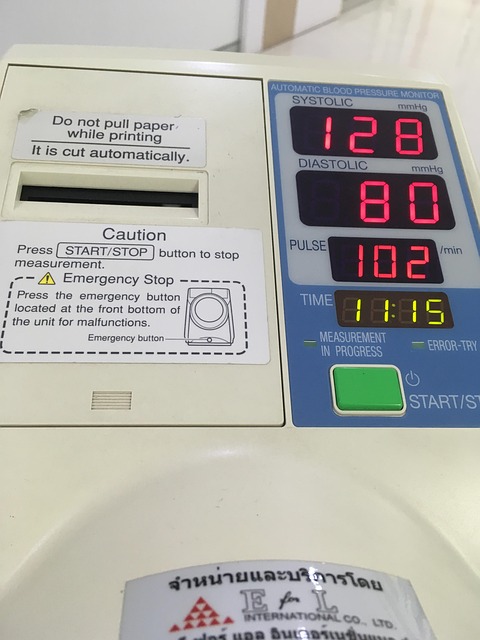Advanced Liver Function Tests (LFTs) in the UK, often including a Vitamin B12 Blood Test, offer detailed insights into liver health beyond basic evaluations. Indicated for symptoms like jaundice, abdominal pain, or elevated liver enzymes, these tests enable early detection of conditions like hepatitis and cirrhosis, assess medication or alcohol-related damage, and monitor treatment effectiveness. By detecting subtle abnormalities and providing data-driven decisions, healthcare professionals can personalise care and improve patient outcomes using the UK Vitamin B12 Blood Test as a vital tool in assessing liver health.
Advanced liver function tests are invaluable tools for medical professionals, offering a deeper understanding of liver health. This comprehensive guide delves into two key areas: Understanding Advanced Liver Function Tests and their benefits, and exploring the UK Vitamin B12 Blood Test as a critical component in assessing liver function. By interpreting advanced liver function results, healthcare providers can make informed decisions, leading to accurate diagnoses and tailored treatment plans. The UK Vitamin B12 Blood Test emerges as a game-changer, providing insights that enhance overall liver assessment.
- Understanding Advanced Liver Function Tests: Indications and Benefits
- UK Vitamin B12 Blood Test: A Critical Component for Comprehensive Liver Assessment
- Interpretive Aspects and Clinical Significance of Advanced Liver Function Results
Understanding Advanced Liver Function Tests: Indications and Benefits
Advanced Liver Function Tests (LFTs) go beyond basic assessments, providing a deeper look into liver health. These tests are crucial for medical professionals to unearth potential issues that may not be evident through routine examinations. In the UK, a comprehensive approach to liver health management often involves a Vitamin B12 Blood Test as part of these advanced LFTs.
Indications for such tests include patients presenting with jaundice, abdominal pain, or abnormal liver enzymes. Benefits are multifaceted: early detection of liver diseases like hepatitis or cirrhosis; assessment of liver damage from medications or alcohol; and monitoring the effectiveness of treatments. This enables healthcare providers to make informed decisions, tailor patient care, and ultimately enhance outcomes.
UK Vitamin B12 Blood Test: A Critical Component for Comprehensive Liver Assessment
In the comprehensive assessment of liver health, the UK Vitamin B12 Blood Test stands as a critical component, offering valuable insights into overall liver function and potentially revealing underlying issues. This test goes beyond traditional liver enzyme levels by specifically measuring the concentration of vitamin B12 in the blood. Vitamin B12 plays a pivotal role in various metabolic processes, including those related to liver health. Deficiencies or imbalances can indicate liver problems or even point towards conditions such as pernicious anaemia, which can impact liver function over time.
For medical professionals, incorporating the UK Vitamin B12 Blood Test into routine liver assessments provides a multifaceted view of a patient’s well-being. By analysing this nutrient’s levels, healthcare providers can identify subtle abnormalities that might be missed through conventional testing alone. This proactive approach to liver evaluation enhances diagnostic accuracy and enables timely interventions, ultimately contributing to better patient outcomes.
Interpretive Aspects and Clinical Significance of Advanced Liver Function Results
Advanced liver function tests offer medical professionals a deeper understanding of liver health beyond basic markers. These comprehensive assessments, like those available through UK Vitamin B12 Blood Tests, provide nuanced insights into various liver-related processes and conditions. When interpreting results, it’s crucial to consider not only individual values but also trends over time. Elevated levels of certain enzymes or abnormal bilirubin readings might indicate hepatocellular injury, biliary obstruction, or even toxic effects from medications.
The clinical significance lies in the ability to detect subtle changes that may be missed by standard tests. Early identification of liver abnormalities can prompt timely interventions and prevent further damage. For instance, low Vitamin B12 levels could suggest pernicious anaemia, a condition requiring specific treatment. By analysing these advanced results, healthcare providers can personalise patient care, monitor treatment effectiveness, and make informed decisions regarding lifestyle modifications or therapeutic interventions to support optimal liver function.
Advanced liver function tests, including the UK Vitamin B12 Blood Test, offer medical professionals a comprehensive tool for assessing liver health. By providing detailed insights into various metabolic processes and nutrient statuses, these tests enable accurate diagnoses and tailored treatment plans. Understanding the interpretive aspects of advanced liver function results is crucial for optimizing patient care, especially in cases where early detection and intervention can significantly impact outcomes.
